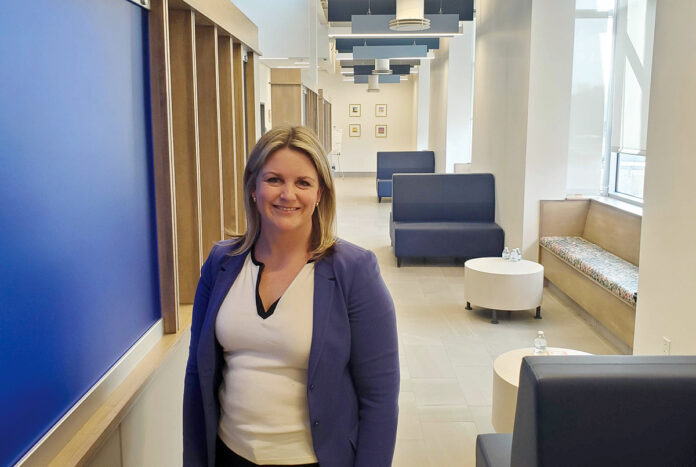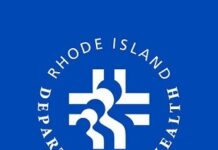Lindsay Lang feels a certain amount of pride that the rate of Rhode Islanders with health insurance coverage is among the highest in the country.
That’s why Lang, the director of the state-based health insurance marketplace HealthSource RI, and other officials are bracing for the start of Medicaid renewals on April 1.
It’s the first time in three years such renewals will take place because they were postponed during the worst of the COVID-19 pandemic, and now it’s expected that coverage for thousands of people in Rhode Island – and millions more nationwide – will be disrupted.
“We’ve come really far, we’re at 97% insured,” Lang said recently. “We don’t want to go backward. We’ve invested in infrastructure, technology, people, partnerships in the community to make sure Rhode Islanders have access to health coverage. We want to really leverage all of that and put it to work for people during this transition.”
Rhode Island has 12 months to complete the renewal process for the more than 350,000 individuals currently enrolled in Medicaid.
The renewals were halted by the federal government in 2020 to protect people’s access to affordable health care during the pandemic. Now state officials are estimating that between 25,000 and 30,000 Rhode Islanders currently on Medicaid will lose the coverage once renewals start because they are no longer eligible for a variety of reasons.
Nationwide, that number is 15 million, according to a Kaiser Family Foundation survey.
“This could be hugely consequential for many people on the Medicaid program,” said David Meyers, assistant professor of health services, policy and practice at Brown University’s School of Public Health. “If it doesn’t go smoothly, it could be disruptive.”
That’s why state leaders are taking steps to ensure the process goes smoothly. In March, Gov. Daniel J. McKee and local health care leaders outlined their 12-month plan to restart renewals and notify individuals on Medicaid of how they will be affected. It was the product of over a year of planning and the collaboration of multiple state agencies and partners.
“From the beginning of the pandemic, we’ve been planning for the end of the pandemic and the return to normal operations,” said Rhode Island Medicaid Program Director Kristin Sousa.
Starting in April, a limited number of individuals will be checked for eligibility, starting from the group of people who were set to go through the process in 2020. After that, the remaining people on Medicaid will go through the process over the next year, with children and families with children going through the renewal process starting in December.
Sousa says she expects about 50% of people on Medicaid will be automatically reenrolled, while others will have to take additional steps to verify whether they are still eligible.
Some of the people who will lose Medicaid coverage might be eligible for an insurance plan through their employer, while some might now be eligible for Medicare.
Also, many people are expected to transition from Medicaid to HealthSource RI. To make the transition easier, the marketplace will offer eligible people transitioning off of Medicaid two months of premium assistance, while some individuals and families will be automatically enrolled, Lang says. Eligibility will be determined based on household income and size.
“We tried to tailor that assistance to folks who might need it most, for whom a disruption in health coverage can be a real disturbance in their lives,” Lang said. “We tailored it to folks 250% of the federal poverty level and below.”
Lang says it’s expected that between 600 and 1,400 people per month will be automatically enrolled in a HealthSource RI plan, in addition to 100 to 300 people that will be eligible for the premium assistance.
But while many will be able to maintain coverage by taking advantage of the state’s marketplace, their new coverage is likely to not be as comprehensive as it was under Medicaid, Meyers says.
“I wouldn’t be surprised to see a jump in uninsured rates,” Meyers said. “But hopefully that can be kept to a minimum.”
People insured under Medicaid started receiving notices in March that update them about the upcoming renewals and inform them of the next steps.
Outreach efforts will come from multiple partners and in multiple forms, to ensure each population is aware of the changes and the steps they need to take.
While officials say Rhode Island’s size puts it at an advantage compared with other states, the transition is bound to face some challenges, according to Meyers.
In particular, certain populations are more at risk of coming out of this year uninsured, including people who are “disconnected from the health care system,” and who might struggle to prove their eligibility.
“While Rhode Island might not push people off as quickly as other states do, it remains to be seen whether the actions the state will take ensure everyone will make it through relatively unscathed,” Meyers said.












